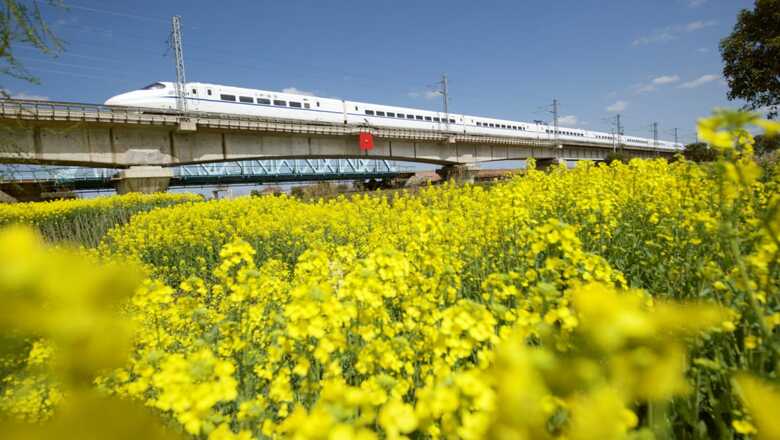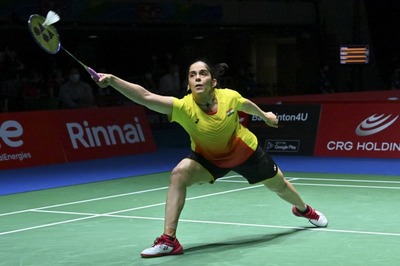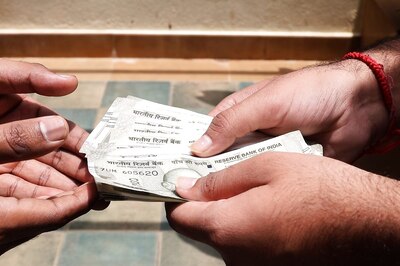
views
The cost of the nation’s first “high-speed rail” or bullet train, connecting Mumbai and Ahmedabad, is expected to exceed Rs 1.6 lakh crore, GST excluded, while the anticipated cost was Rs 1.08 lakh crore in the 2015 feasibility study, according to a recent report.
The delay has reportedly been caused by the Covid-19 pandemic as well as land acquisition issues.
The National High-Speed Rail Corporation Limited (NHSRCL) maintained that the revised cost could be determined only after the award of all contracts and completion of land acquisition. A report in Times of India quoted sources as saying that the price increase is a given due to increased expenditure on land acquisition, rise in prices of cement, steel, and other raw materials.
To understand the issues related to the bullet train project, News18 reached out to Lalit Chandra Trivedi, ex-officer of the Indian Railway Service of Mechanical Engineers and the Chairman of the Rail Division of the Indian chapter of the Institute of Mechanical Engineers.
Explaining the delay in the Mumbai-Ahmedabad High-Speed Rail Corridor project, he said: “The major issue was on account of delay in the land acquisition process. The attitude of the then Maharashtra state government in delaying various clearances was also an issue.”
Trivedi now believes that with the change in the state government, bureaucratic delays will not be an issue anymore.
According to reports, following a letter highlighting 16 concerns related to the project delay from the NHSRCL to the state chief secretary, the Maharashtra government under Chief Minister Eknath Shinde has resolved issues involving land acquisition and granted first-stage forest clearance.
It was also stated that the current government is committed to settling disputes surrounding the transfer of property for a tunnel shaft and underground station by September this year and stage two forest clearance is anticipated to be completed by the same time.
Later, Devendra Fadnavis, who is now the deputy chief minister of the state, confirmed that the government has given all the clearances for expediting the most-awaited project, which was sanctioned in December 2015.
However, according to Trivedi, land acquisition has been the major roadblock but “as per my information now the work is in full swing”.
According to reports, only 150 hectares of the 298 hectares needed in Maharashtra had been obtained as of this April, when the Uddhav Thackeray government was in power. But the new administration has significantly accelerated the Maharashtra land purchase process after entering office on June 30.
“With solutions to the land acquisition process and other state government-based statutory clearances in sight, it is hoped that process will gather momentum,” Trivedi noted.
Additionally, he believes that the Ahmedabad to Surat leg will be available earlier and the “complete Mumbai-Ahmedabad portion may be over by 2028”.
It should be noted that for the third tranche of the loan for the construction of the Mumbai-Ahmedabad High-Speed Rail, the Japan International Cooperation Agency (JICA) and the Centre have signed a loan agreement.
The loan will provide Official Development Assistance (ODA) funding of about Rs 6,000 crore or 100 billion Japanese Yen. The financial agreement was finalised last month and follows a 2017 pledge from JICA totalling Rs 18,000 crore.
It was stated that since the JICA loan is in the Japanese Yen, worldwide price fluctuations have also influenced the cost.
In this case, Trivedi said: “As far as foreign currency fluctuations are concerned, in the last five years, there have not been major fluctuations in the exchange rate.”
According to him, one of the primary variables influencing infra-project costs in the country is the fourfold increase in land cost compensation that has occurred since 2014.
However, Trivedi also stated that the country is “certainly lagging behind” in the technological frontier, while adding that out of around 70,000 km of high-speed rail globally, India’s share is nil.
Furthermore, he said: “Considering the fact that our arch-rival China has done more than 40,000-km of high-speed rail, including Meglev, we have a lot of catching up to do.”
Read all the Latest News and Breaking News here



















Comments
0 comment